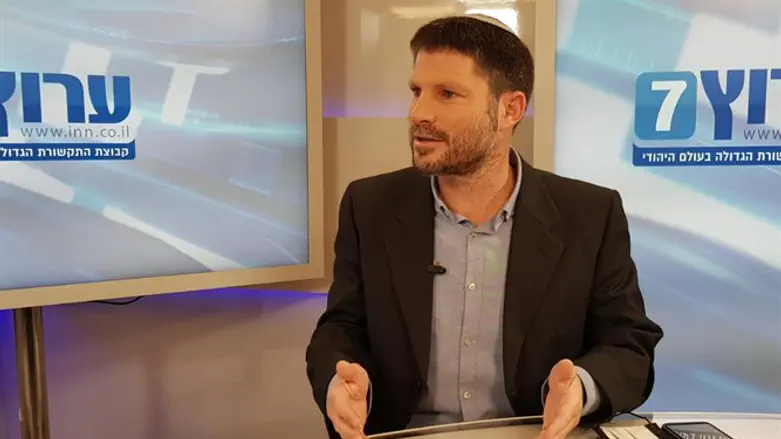
MK Bezalel Smotrich, head of the Knesset's Religious Zionism party, said Yamina chair, MK Naftali Bennett, is "a companion on the journey and a brother," and hopes that he "recovers himself."
Speaking at a press conference about the recent debate between Bennett and New Hope's Gideon Sa'ar, Smotrich said, "I'm not involving myself in how the Left divides its votes."
"Naftali is a companion on the journey and a brother, and the jab is said with a smile," he wrote on Twitter. "But what is true is that the fact that he refuses, again and again, to say clearly that he will not support a government in which [Labor chair MK] Merav Michaeli will be Education Minister and [Yesh Atid chair MK] Yair Lapid will be Justice Minister and maybe even prime minister under a rotation deal, kind of worries me. I admit it. I hope he recovers himself, because his heart is in the right place."
The statement, "I'm not involving myself in how the Left divides its votes," was first said by Israeli Prime Minister Binyamin Netanyahu in June 2018, when he was asked for his opinion after Defense Minister Benny Gantz (Blue and White) entered politics.
Earlier on Thursday morning, Smotrich presented his party's position on education, promising to work to reduce tuition by at least 30%.
Among the issues mentioned in his plan is anchoring in the base budget for post-high school yeshivas, hesder yeshivas, pre-military academies, and women's post-high school Torah study programs; dealing with the "hilltop youth"; a massive investment in youth movements; and a reform in the conditions of National Service volunteers.
"As a member of the Finance Committee for the past six years, I dealt quite a lot with the budgets for religious education, and the goal I set for myself is to stop waiting for political favors for the budgeting, and to anchor it into law, alongside a significant reduction in the tuition that parents are paying," Smotrich said.
"A student in a religious institution does not receive more than a secular student. Our demand is recognition of the uniqueness of religious education, but together with that, we are suggesting budgetary alternatives."
